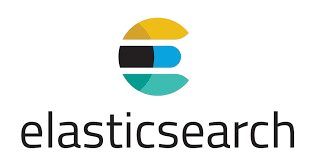Unlock Powerful Search Capabilities with Elasticsearch Today!

Supercharge Your Data Analytics Get Started with Elasticsearch!
Elasticsearch is an open-source distribution, RESTful search and analytics engine, scalable data store, and vector database capable of addressing a growing number of use cases. As the heart of the Elastic Stack, it centrally stores your data for lightning-fast search, fine‑tuned relevancy, and powerful analytics that scale with ease.
Key Features of Elasticsearch
- Distributed Architecture– Handles large-scale data across multiple nodes.
- Full-Text Search– Uses inverted indexes for fast and efficient text-based queries.
- Real-Time Data Processing– Supports near real-time indexing and search.
- Scalability & High Availability– Scales horizontally using sharding and replication.
- RESTful API- Provides easy interaction with various programming languages.
- Multi-Tenancy Support– Allows indexing of multiple datasets in isolated indices.
Implement Actual Data With The Use Of Elastic Search
Before

After

Core Components of Elasticsearch
- Index: A collection of documents with similar characteristics, like a database in relational systems.
- Document: A JSON-based data unit stored in an index, similar to a row in a database table.
- Shard: A subset of an index, allowing distributed storage and parallel processing for scalability.
- Replica: A copy of a shard, improving fault tolerance and enhancing query performance.
- Cluster: A group of interconnected nodes working together as a unified system.
- Node: A single server that stores data and performs search and indexing operations.
- Inverted Index: A data structure that enables fast full-text searches by mapping words to documents.
- Query DSL (Domain-Specific Language): A flexible JSON-based query language for searching and filtering data.
- Analyzer: Processes text during indexing and search, including tokenization and stemming.
- Aggregation: A framework for performing analytics, such as calculating metrics and generating reports.
Advantages of Elasticsearch
- High-Speed Search Performance: Lightning-fast search and retrieval of data.
- Scalability & Distributed Architecture: Easily scales horizontally by adding nodes and shards to handle growing data.
- Full-Text Search Capabilities: Supports advanced natural language processing (NLP), tokenization, and relevance scoring.
- Real-Time Data Processing: Indexes data instantly, allowing near real-time search and analytics.
- Flexible Query Language (DSL): Provides a powerful JSON-based Query DSL for complex searches and filtering.
- Built-In Analytics & Aggregations: Performs real-time data analysis, statistical computations, and visualization.
- Fault Tolerance & High Availability: Replica shards ensure data redundancy, minimizing downtime risks.
- Easy Integration with Other Tools: Works seamlessly with Kibana, Logstash, Beats, and other data sources.
- Security & Access Control: Provides role-based access, encryption, and authentication mechanisms.
- Open Source & Active Community: Free to use with strong developer support and regular updates.
Optimizing Workflows for Maximum Efficiency
Deployment & Setup:
Seamless installation and configuration tailored to your needs.
Search Engines:
Fine-tuning Elasticsearch for faster indexing and search performance.
Custom Search Solutions:
Implementing advanced search functionalities for websites and applications.
Log & Data Analytics:
Setting up ELK Stack (Elasticsearch, Logstash, Kibana) for real-time insights.
Security & Access Control:
Implementing role-based access, authentication, and encryption.
High Availability:
Ensuring efficient clustering, sharding, and replication strategies.
Maintenance & Support:
Ongoing monitoring, troubleshooting, and updates for optimal performance.